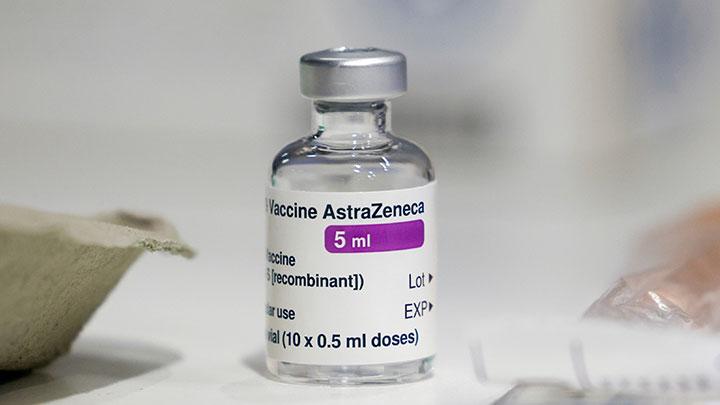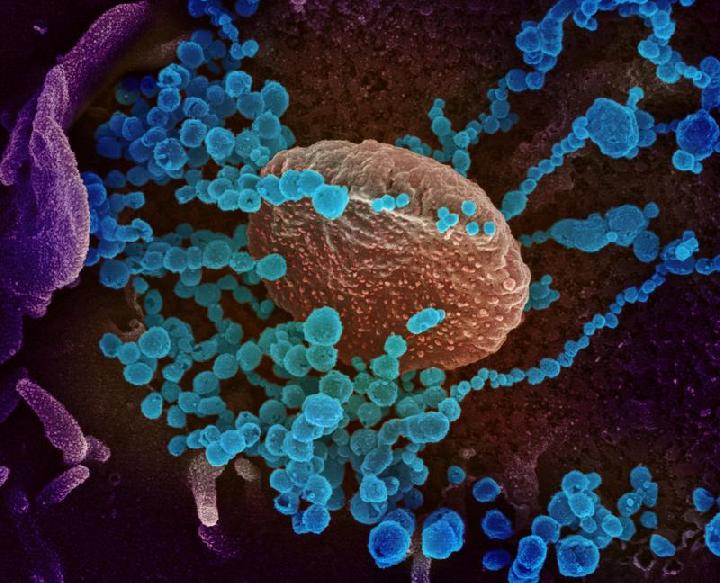COVID-19 Journey and Future Pandemics
Translator
Laila Afifa
Editor
Petir Garda Bhwana
Senin, 4 Desember 2023 13:49 WIB

TEMPO.CO, Jakarta - The COVID-19 pandemic has changed people’s lives in many aspects. Through its journey, global citizens are expected to learn the lesson and could be prepared if similar issues occur. During the 2023 APSR Congress in Singapore on November 18, an infectious diseases physician-scientist from SUNY Upstate Medical University New York, Prof. Stephen Thomas, explained the latest insights and future trends of the Sars-CoV-2 disease.
He explained that SARS-CoV-2 spike protein plays a key role in infection. “If we can prevent SARS-CoV-2 from binding to target cells, we may be able to reduce viral replication and prevent or attenuate clinical disease,” Prof. Thomas said during his presentation at 2023 APSR’s symposium held at Suntec Singapore Convention Center on Saturday, Nov. 18, 2023.
COVID-19 created public health burdens as the respiratory disease is capable of causing severe disease and death across diverse populations. It is also capable of causing prolonged and disabling clinical syndromes and stresses the healthcare system; such as the surge of COVID-19 cases and less capacity for non-COVID-19 cases.
Previously, during the discussion held by Pfizer on Friday, Nov. 17, at Conrad Centennial Singapore, experts collectively said that the highly contagious respiratory disease still poses health threats. Not only does it show mild symptoms the majority of the public is already aware of, such as cough, difficulty breathing, fever/ chills, muscle or body aches, vomiting or diarrhea, etc., but it may also lead to severe COVID-19 and Long Covid. People with comorbidities or certain chronic diseases have a higher risk for severe COVID.
According to the CDC, age above 50 years is the strongest risk factor for severe COVID-19 outcomes, with the risk of more severe outcomes increasing with age above 65 years.
Covid-19 Medication and Vaccination
During the pandemic, Covid-19 medication was given under an emergency permit, in addition to prevention with vaccination, to reduce the risks of severe symptoms and prevent Long Covid. According to data presented by Prof. Thomas, treatment with metformin reduced Long Covid incidence by about 41% in outpatient treatment for COVID and incidence of post-Covid conditions over 10 months (Covid-out).
In today’s COVID-19 mitigation, therefore, Prof. Stephen Thomas urged assessment, diagnosis, engaging specialists, coordinating and facilitating, reassuring, and preparing for the long haul.
In addition, Covid-19 vaccination is still highly effective, since all vaccine platforms aim to generate an immune response to the spike protein from the SARS-CoV-2 virus. However, there are several factors impacting COVID-19 vaccine performance, such as technology, age group, comorbidities, time since the last vaccination, circulating variants, and outcome being measured.
The expert committee on COVID-19 vaccination (EC19V) recommended using the updated Pfizer-BioNTech and Moderna vaccines. It assessed that the updated vaccines can provide a stronger immune response against current and emerging strains compared to older versions. The EC19V also recommends that an additional dose of the updated vaccine is administered around 1 year (and no earlier than 5 months) after the last dose.
Current studies suggest that COVID-19 vaccines might have protective effects on long covid. However, it needs more robust comparative observational studies and trials to determine the effectiveness of vaccines in preventing and treating long-term Covid. COVID-19 vaccines were also effective in the prevention of post-COVID conditions: 36.9% among those who received 2 doses of COVID-19 vaccine before COVID-19 infection and 68.7% among those who received 3 doses before COVID-19 infection.
What to Expect Next
The Covid-19 endemic is unclear and that seasonality is a possibility. Dr. Thomas, who is also a Professor of Medicine and Microbiology and Immunology at the State University of New York, mentioned that SARS-CoV-2 activity is expected to increase this autumn/ winter. Data showed that disease activity peaked between November and April and was similar to patterns seen for influenza, RSV, and other coronaviruses.
Besides, despite the success of vaccination and medication, Prof. Thomas admitted that they still need to work more in terms of the ability to detect when something new happens. He also asserted the importance of vaccination amid the Covid-19 endemic.
“Doctors and scientists need to learn to communicate better with the public and the general population about science and medicine and the importance of getting vaccinated, for example,” he said when met by Tempo after the symposium at Suntec Singapore Convention Centre on Saturday, Nov. 18, 2023.
The devastating Covid-19 pandemic has changed people’s lives. Now that it has become endemic, the world is still expected to be prepared for possible future pandemics. When asked by Tempo what the next pandemic would possibly be, Prof. Stephen Thomas said, “I think we’re going to continue to have these problems, but hopefully not at this (COVID-19) scale.”
He elaborated that it is probably going to be in respiratory virus since it is easily transmitted, for example, avian influenza as some of the strains have very high death rates. “If you match up transmissibility with a high death rate, that’s gonna be a really tough situation. That’s what I’m really concerned about, flu, still.”
Regarding the medical and government collaboration in facing possible future pandemics, he said that the government can play a very prominent role in terms of setting a tone of importance. He believed that they could certainly bring financial resources and other resources to the discussion.
“No pharmaceutical or non-pharmaceutical intervention is perfect, but if we layer and bundle multiple good interventions, we can make meaningful impacts on the protection of individuals and communities,” Prof. Stephen Thomas remarked.
LAILA AFIFA
Editor's Choice: Experts Urge COVID-19 Treatment in the Endemic Age
Click here to get the latest news updates from Tempo on Google News




















